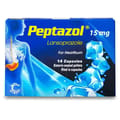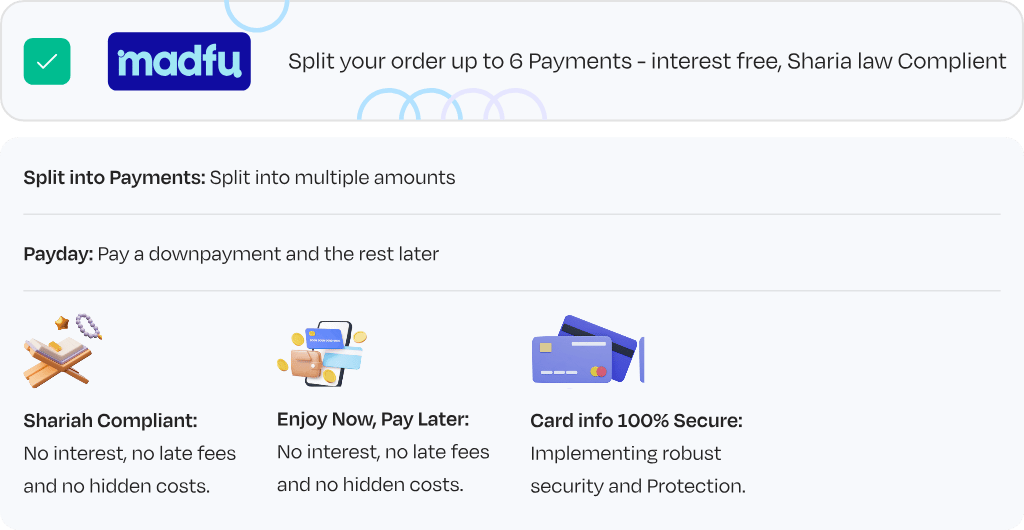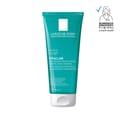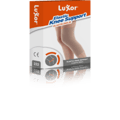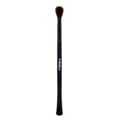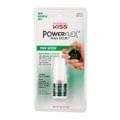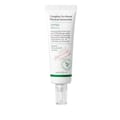Lansoprazole 15mg Capsules
What is Lansoprazole used for:
Lansoprazole is a medication that is used for multiple indications in adults:
• Duodenal ulcers (sore that forms at the beginning of your small intestine)
• H Pylori eradication (a bacteria that can live in your gut and cause ulcers) to prevent recurrence of duodenal ulcers
• Benign gastric ulcer (non-cancerous sore that forms in your stomach)
• NSAID-associated ulcer (sore that forms in your gut due to excessive use of NSAIDs)
• GERD (acid reflux also known as “heartburn”)
In addition, it can be used in children for the following indications:
• GERD
• Erosive esophagitis (acid irritation injuring the esophagus)
• Pathological hypersecretory conditions (problems in the gut that cause excessive acid production)
Do not take Lansoprazole:
If you are allergic to Lansoprazole or any of the ingredients in this medicine. Tell your doctor about the allergy and what signs you had.
Warnings and Precautions:
• Talk to your doctor or pharmacist if you develop allergic reactions such as shortness of breath, skin rash, swelling of the face or neck, decreased blood pressure and dizziness.
• Decreased signs and symptoms from the use of this medication does not necessarily mean prevented risk of stomach cancer.
• Use of this medication may be linked to Clostridium Difficile diarrhea (a bacterial infection in the stomach that causes diarrhea). Make sure to tell your doctor if you experience diarrhea.
• Prolonged and multiple daily use of this medication may lead to osteoporosis (weakness of the bones causing fractures) and put you at risk of fractures of the hip, spine or wrist.
• Long-term use of this medication may cause low magnesium levels in your blood. Your doctor may recommend monitoring your levels at the lab on a regular basis.
Possible side effects of Lansoprazole:
Side effects of Lansoprazole include: allergic reaction, low magnesium levels, convulsions, dizziness, abnormal or fast heartbeat, jitteriness (jumping and nervousness), shaking, muscle weakness, spasms of the feet and hands, muscle pain, spasms of larynx (voice box), diarrhea, nausea, headache, constipation and stomach pain
Other medicines and Lansoprazole :
Tell your doctor or pharmacist if you are taking, have recently taken or might take any other medications.
• If you are taking atazanavir (used to treat HIV).
• If you are warfarin (blood thinner)
• If you are taking tacrolimus (antirejection medication)
• If you are taking theophyline (used to treat airway spasms)
• If you are taking methotrexate (antirejection medication)
16060- Home
- Medications
- OTC
- Peptazol 15 mg 14 Cap
Peptazol 15 mg 14 Cap
 22.95
22.95Loyalty Program
Loyalty
For each qualifying purchase you make, you will accumulate loyalty points. These points can then be redeemed for a variety of rewards such as discounts, exclusive, offers or even free products.
For Each
100
SAR
-->
100
POINTS
TIER2
100
SPAR SPEND
=
100
POINTS
TIER3
100
SPAR SPEND
=
100
POINTS
- Details
Lansoprazole 15mg Capsules
What is Lansoprazole used for:
Lansoprazole is a medication that is used for multiple indications in adults:
• Duodenal ulcers (sore that forms at the beginning of your small intestine)
• H Pylori eradication (a bacteria that can live in your gut and cause ulcers) to prevent recurrence of duodenal ulcers
• Benign gastric ulcer (non-cancerous sore that forms in your stomach)
• NSAID-associated ulcer (sore that forms in your gut due to excessive use of NSAIDs)
• GERD (acid reflux also known as “heartburn”)
In addition, it can be used in children for the following indications:
• GERD
• Erosive esophagitis (acid irritation injuring the esophagus)
• Pathological hypersecretory conditions (problems in the gut that cause excessive acid production)
Do not take Lansoprazole:
If you are allergic to Lansoprazole or any of the ingredients in this medicine. Tell your doctor about the allergy and what signs you had.
Warnings and Precautions:
• Talk to your doctor or pharmacist if you develop allergic reactions such as shortness of breath, skin rash, swelling of the face or neck, decreased blood pressure and dizziness.
• Decreased signs and symptoms from the use of this medication does not necessarily mean prevented risk of stomach cancer.
• Use of this medication may be linked to Clostridium Difficile diarrhea (a bacterial infection in the stomach that causes diarrhea). Make sure to tell your doctor if you experience diarrhea.
• Prolonged and multiple daily use of this medication may lead to osteoporosis (weakness of the bones causing fractures) and put you at risk of fractures of the hip, spine or wrist.
• Long-term use of this medication may cause low magnesium levels in your blood. Your doctor may recommend monitoring your levels at the lab on a regular basis.
Possible side effects of Lansoprazole:
Side effects of Lansoprazole include: allergic reaction, low magnesium levels, convulsions, dizziness, abnormal or fast heartbeat, jitteriness (jumping and nervousness), shaking, muscle weakness, spasms of the feet and hands, muscle pain, spasms of larynx (voice box), diarrhea, nausea, headache, constipation and stomach pain
Other medicines and Lansoprazole :
Tell your doctor or pharmacist if you are taking, have recently taken or might take any other medications.
• If you are taking atazanavir (used to treat HIV).
• If you are warfarin (blood thinner)
• If you are taking tacrolimus (antirejection medication)
• If you are taking theophyline (used to treat airway spasms)
• If you are taking methotrexate (antirejection medication)
Lansoprazole 15mg Capsules
What is Lansoprazole used for:
Lansoprazole is a medication that is used for multiple indications in adults:
• Duodenal ulcers (sore that forms at the beginning of your small intestine)
• H Pylori eradication (a bacteria that can live in your gut and cause ulcers) to prevent recurrence of duodenal ulcers
• Benign gastric ulcer (non-cancerous sore that forms in your stomach)
• NSAID-associated ulcer (sore that forms in your gut due to excessive use of NSAIDs)
• GERD (acid reflux also known as “heartburn”)
In addition, it can be used in children for the following indications:
• GERD
• Erosive esophagitis (acid irritation injuring the esophagus)
• Pathological hypersecretory conditions (problems in the gut that cause excessive acid production)
Do not take Lansoprazole:
If you are allergic to Lansoprazole or any of the ingredients in this medicine. Tell your doctor about the allergy and what signs you had.
Warnings and Precautions:
• Talk to your doctor or pharmacist if you develop allergic reactions such as shortness of breath, skin rash, swelling of the face or neck, decreased blood pressure and dizziness.
• Decreased signs and symptoms from the use of this medication does not necessarily mean prevented risk of stomach cancer.
• Use of this medication may be linked to Clostridium Difficile diarrhea (a bacterial infection in the stomach that causes diarrhea). Make sure to tell your doctor if you experience diarrhea.
• Prolonged and multiple daily use of this medication may lead to osteoporosis (weakness of the bones causing fractures) and put you at risk of fractures of the hip, spine or wrist.
• Long-term use of this medication may cause low magnesium levels in your blood. Your doctor may recommend monitoring your levels at the lab on a regular basis.
Possible side effects of Lansoprazole:
Side effects of Lansoprazole include: allergic reaction, low magnesium levels, convulsions, dizziness, abnormal or fast heartbeat, jitteriness (jumping and nervousness), shaking, muscle weakness, spasms of the feet and hands, muscle pain, spasms of larynx (voice box), diarrhea, nausea, headache, constipation and stomach pain
Other medicines and Lansoprazole :
Tell your doctor or pharmacist if you are taking, have recently taken or might take any other medications.
• If you are taking atazanavir (used to treat HIV).
• If you are warfarin (blood thinner)
• If you are taking tacrolimus (antirejection medication)
• If you are taking theophyline (used to treat airway spasms)
• If you are taking methotrexate (antirejection medication)
How to take Lansoprazole:
Adults and children:
Recommended dose and treatment duration is individualized based on age and indication. Usual dose ranges from 15 to 30mg once daily. Frequency is increased to twice or thrice daily if used for the eradication of H Pylori.
• Take tablets or capsules before food.
• Swallow delayed-release capsules whole.
• Do not chew or crush tablets or delayed release capsules.
• If you cannot swallow a whole capsule, open the capsule and swallow the contents with a small amount of food or juice.
• The soluble tablet form of this medication dissolves rapidly in your mouth with or without water.
• Do not break soluble tablets.
Lansoprazole 15mg
Lansoprazole 15mg Capsules
What is Lansoprazole used for:
Lansoprazole is a medication that is used for multiple indications in adults:
• Duodenal ulcers (sore that forms at the beginning of your small intestine)
• H Pylori eradication (a bacteria that can live in your gut and cause ulcers) to prevent recurrence of duodenal ulcers
• Benign gastric ulcer (non-cancerous sore that forms in your stomach)
• NSAID-associated ulcer (sore that forms in your gut due to excessive use of NSAIDs)
• GERD (acid reflux also known as “heartburn”)
In addition, it can be used in children for the following indications:
• GERD
• Erosive esophagitis (acid irritation injuring the esophagus)
• Pathological hypersecretory conditions (problems in the gut that cause excessive acid production)
Do not take Lansoprazole:
If you are allergic to Lansoprazole or any of the ingredients in this medicine. Tell your doctor about the allergy and what signs you had.
Warnings and Precautions:
• Talk to your doctor or pharmacist if you develop allergic reactions such as shortness of breath, skin rash, swelling of the face or neck, decreased blood pressure and dizziness.
• Decreased signs and symptoms from the use of this medication does not necessarily mean prevented risk of stomach cancer.
• Use of this medication may be linked to Clostridium Difficile diarrhea (a bacterial infection in the stomach that causes diarrhea). Make sure to tell your doctor if you experience diarrhea.
• Prolonged and multiple daily use of this medication may lead to osteoporosis (weakness of the bones causing fractures) and put you at risk of fractures of the hip, spine or wrist.
• Long-term use of this medication may cause low magnesium levels in your blood. Your doctor may recommend monitoring your levels at the lab on a regular basis.
Possible side effects of Lansoprazole:
Side effects of Lansoprazole include: allergic reaction, low magnesium levels, convulsions, dizziness, abnormal or fast heartbeat, jitteriness (jumping and nervousness), shaking, muscle weakness, spasms of the feet and hands, muscle pain, spasms of larynx (voice box), diarrhea, nausea, headache, constipation and stomach pain
Other medicines and Lansoprazole :
Tell your doctor or pharmacist if you are taking, have recently taken or might take any other medications.
• If you are taking atazanavir (used to treat HIV).
• If you are warfarin (blood thinner)
• If you are taking tacrolimus (antirejection medication)
• If you are taking theophyline (used to treat airway spasms)
• If you are taking methotrexate (antirejection medication)
How to take Lansoprazole:
Adults and children:
Recommended dose and treatment duration is individualized based on age and indication. Usual dose ranges from 15 to 30mg once daily. Frequency is increased to twice or thrice daily if used for the eradication of H Pylori.
• Take tablets or capsules before food.
• Swallow delayed-release capsules whole.
• Do not chew or crush tablets or delayed release capsules.
• If you cannot swallow a whole capsule, open the capsule and swallow the contents with a small amount of food or juice.
• The soluble tablet form of this medication dissolves rapidly in your mouth with or without water.
• Do not break soluble tablets.
Lansoprazole 15mg
Lansoprazole 15mg Capsules
What is Lansoprazole used for:
Lansoprazole is a medication that is used for multiple indications in adults:
• Duodenal ulcers (sore that forms at the beginning of your small intestine)
• H Pylori eradication (a bacteria that can live in your gut and cause ulcers) to prevent recurrence of duodenal ulcers
• Benign gastric ulcer (non-cancerous sore that forms in your stomach)
• NSAID-associated ulcer (sore that forms in your gut due to excessive use of NSAIDs)
• GERD (acid reflux also known as “heartburn”)
In addition, it can be used in children for the following indications:
• GERD
• Erosive esophagitis (acid irritation injuring the esophagus)
• Pathological hypersecretory conditions (problems in the gut that cause excessive acid production)
Do not take Lansoprazole:
If you are allergic to Lansoprazole or any of the ingredients in this medicine. Tell your doctor about the allergy and what signs you had.
Warnings and Precautions:
• Talk to your doctor or pharmacist if you develop allergic reactions such as shortness of breath, skin rash, swelling of the face or neck, decreased blood pressure and dizziness.
• Decreased signs and symptoms from the use of this medication does not necessarily mean prevented risk of stomach cancer.
• Use of this medication may be linked to Clostridium Difficile diarrhea (a bacterial infection in the stomach that causes diarrhea). Make sure to tell your doctor if you experience diarrhea.
• Prolonged and multiple daily use of this medication may lead to osteoporosis (weakness of the bones causing fractures) and put you at risk of fractures of the hip, spine or wrist.
• Long-term use of this medication may cause low magnesium levels in your blood. Your doctor may recommend monitoring your levels at the lab on a regular basis.
Possible side effects of Lansoprazole:
Side effects of Lansoprazole include: allergic reaction, low magnesium levels, convulsions, dizziness, abnormal or fast heartbeat, jitteriness (jumping and nervousness), shaking, muscle weakness, spasms of the feet and hands, muscle pain, spasms of larynx (voice box), diarrhea, nausea, headache, constipation and stomach pain
Other medicines and Lansoprazole :
Tell your doctor or pharmacist if you are taking, have recently taken or might take any other medications.
• If you are taking atazanavir (used to treat HIV).
• If you are warfarin (blood thinner)
• If you are taking tacrolimus (antirejection medication)
• If you are taking theophyline (used to treat airway spasms)
• If you are taking methotrexate (antirejection medication)
How to take Lansoprazole:
Adults and children:
Recommended dose and treatment duration is individualized based on age and indication. Usual dose ranges from 15 to 30mg once daily. Frequency is increased to twice or thrice daily if used for the eradication of H Pylori.
• Take tablets or capsules before food.
• Swallow delayed-release capsules whole.
• Do not chew or crush tablets or delayed release capsules.
• If you cannot swallow a whole capsule, open the capsule and swallow the contents with a small amount of food or juice.
• The soluble tablet form of this medication dissolves rapidly in your mouth with or without water.
• Do not break soluble tablets.
Lansoprazole 15mg



